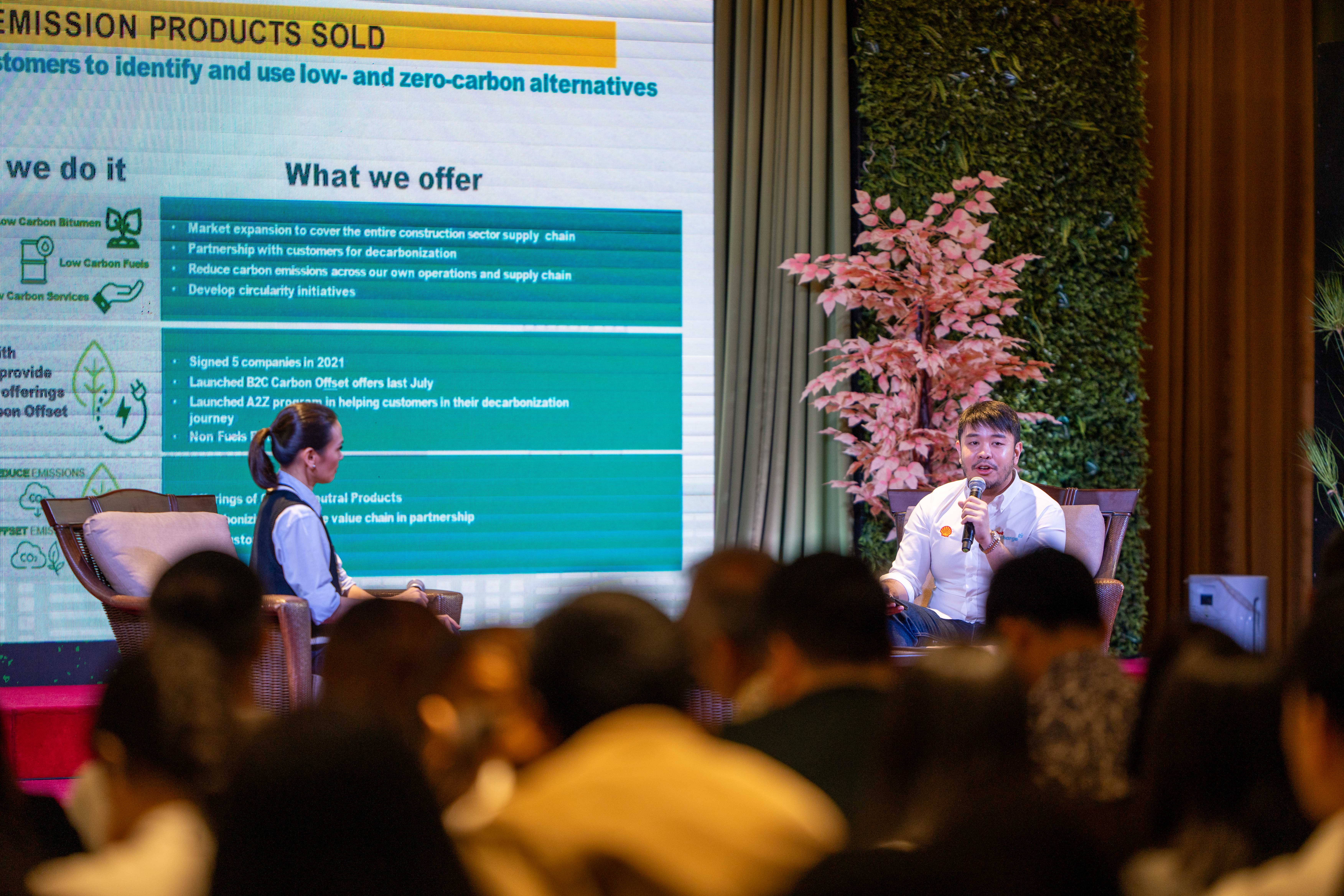Propelling progress: Shell Philippines pushes for green goals
The fuel provider has cut operation emissions by 90 percent
By Mat Richter
Achieving a sustainable planet entails that we understand first, at minimum, the surface, how human activities have led to the climate crisis. This would encourage us to take some accountability and fulfill our shared responsibility to preserve the Earth.
The goal to mitigate the effects of climate change demands that the average global temperature stay within 1.5 degrees Celsius above pre-industrial levels. The goal requires a massive cut in emissions over the next six years and, in turn, calls for a pressing need for businesses and consumers to adopt sustainable practices urgently.
On the road toward decarbonization, Shell Philippines is taking the wheel in achieving emission reduction and fueling communities with hope for the planet.

Fuel for the future
In the recently held Manila Bulletin Sustainability Focus Session, the business development manager of Shell Fleet Solutions, Nate De Jesus, said the company has lowered its carbon emissions by about 90 percent in its operations. He stated that they used to produce 300,000 tons of carbon emissions, which has been reduced to 27,000 tons.
“Since we're still at 27,000 tons, we're still producing 27,000 tons of carbon emissions. That's why we're doing all of these other initiatives. Our goal is to offer a comprehensive suite of services that are designed to help accelerate our customers toward achieving their decarbonization ambitions,” he said.
The fuel provider has also launched the “Accelerate to Zero” program, which aims to help companies identify parts of their business they can decarbonize.
“For instance, we can recommend for them to start using telematics or a high-end GPS that will help them create more efficient routes for their drivers, or improve the way that their drivers drive their cars so that they use less fuel,” he exemplified.

To further its commitment to supporting sustainability, the company has installed around 5,000 solar panels in its terminal facility. De Jesus said they have 145 mobility sites with solar panel installations and about three to four turbines used to power a small shed in its terminals.
In terms of electric vehicles (EV), the company has two stations with “ultra-fast” EV chargers, each in SLEX and TPLEX, which are said to provide EV users about 700 kilometers in range and “solve a lot of range anxiety that a lot of EV drivers encounter.”
Moving forward, De Jesus explained that the following principles will guide them to further their renewable energy commitment: How they will decarbonize their own operations, contribute as an energy provider, and become a partner in the energy transition.
“We aim to navigate how we partner with private enterprises and government agencies, and hopefully influence them, given that we have experience in energy transition and circularity in the region and globally. We can also share best practices that were or are being done in other countries and how they can be adopted in the Philippines,” he expressed.
Toward a plastic-free planet
The fuel provider recycles plastics and converts them into an additive that it uses for asphalt construction.
“A lot of our packaging from lubricants are actually recycled products. We encourage our customers to recycle their lubricant bottles. We'll use a digital app to be able to track this. We have drop-off points across Metro Manila where they can deposit their lubricant bottles, and we have a facility in CDO where they transform these lubricant bottles into eco bricks,” the business development manager said.

Through its recycling efforts, the company has also empowered communities by providing livelihoods through eco hubs, which are tasked to do recycling activities. It currently has three eco hubs, each in Batangas, Tacloban, and CDO.
People can soon drop off plastics in shell stations, an ongoing project of the company to be completed by the end of the year.
“We are looking for any kind of plastics. We're also partnering with Coca-Cola because they have the World Without Waste program, and we're also going to be using their drop-off points. In case you want to know more about it, download the shell app,” he said.
As industries choose greener alternatives, may we be reminded of our collective obligation to understand our ecological footprint, how it impacts the environment, and how we can reduce it to practice sustainability. Shell Philippines' massive emission reduction as it operates shows that attaining renewable energy in this industry is sustainable and possible. This spark of hope helps fuel the change needed to achieve a planet where people are mindful of the consequences entailed by the non-renewable consumption of sources.
The Manila Bulletin Sustainability Focus Session was held in collaboration with Shell Philippines, AboitizPower, Arthaland, Ayala Land, RLC Residences, Megaworld Hotels and Resorts, SM Development Corporation (SMDC), and the University of Santo Tomas.